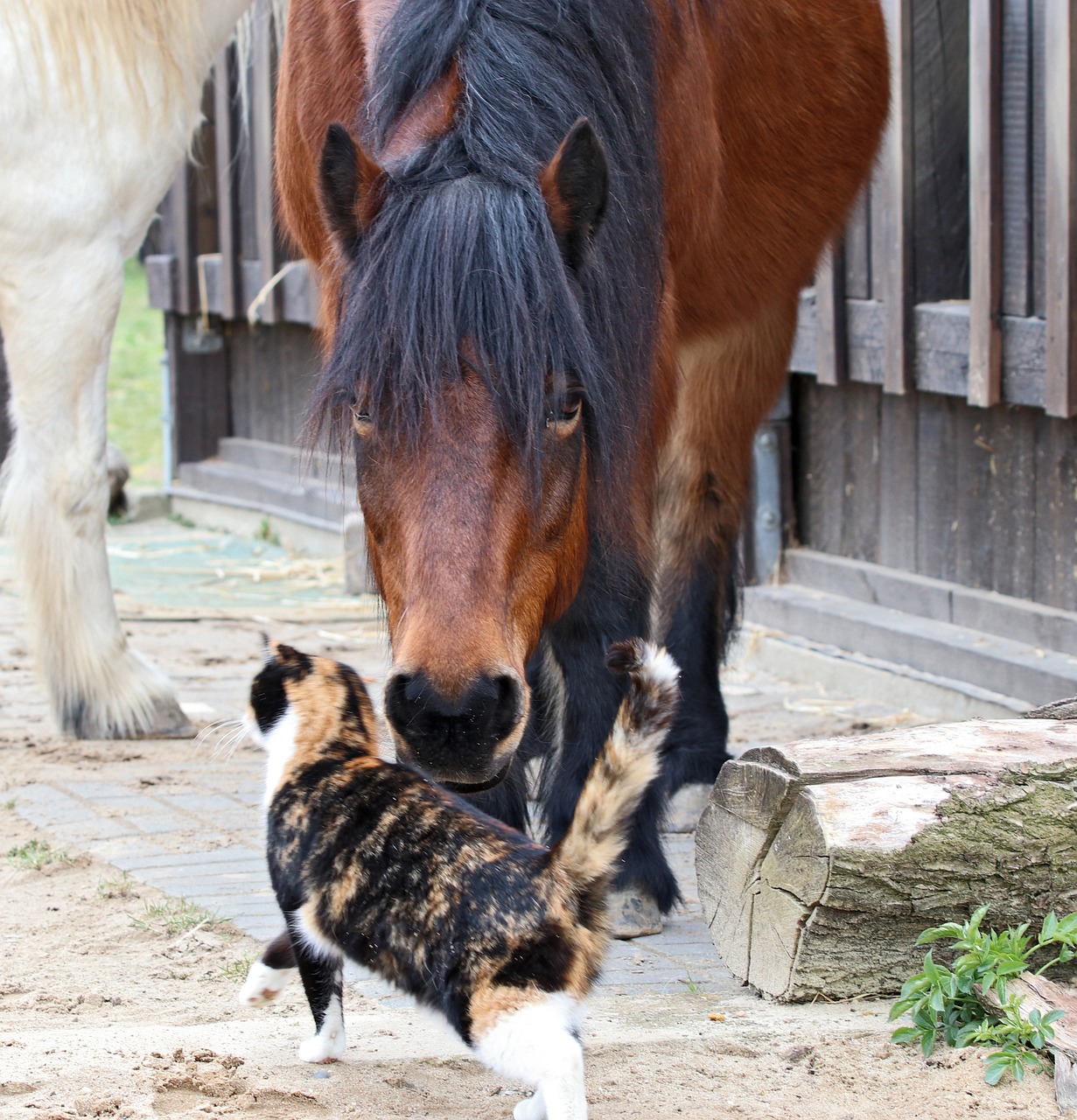
By the EIE Editorial Staff
Barn cats can be amazing allies for horse owners, providing both direct and indirect benefits and a great greeter when you visit your horse at the barn! The barn environment may also be a place where cats who are otherwise unadoptable can live a happy and fulfilling life. Here are some of the benefits of having a barn cat.
Pest Control
- Natural hunters: Their primary benefit is keeping rodent populations in check. Mice and rats can damage feed, spread disease, and even gnaw on horses' tails and manes. By taking care of these pests, barn cats help protect your horses' health and well-being.
- Deterrence: Even their presence can deter rodents. Their keen senses and reputation as predators scare away unwanted critters, reducing the need for other pest control methods.
Cost-Effective
- Sustainable solution: Compared to traps, poisons, or professional pest control services, barn cats are a more natural and cost-effective solution over time.
- Low-maintenance: While you'll need to provide food, water, and shelter, they generally take care of themselves, requiring minimal intervention. A great idea is affordable pet insurance.
Other Benefits
Specifically for Horses
- Reduced stress: Some horses seem to be less anxious with cats around, which can be helpful for nervous or easily spooked horses.
- Pest control around feed: Rodents can contaminate feed with droppings and attract other pests. Barn cats help keep feed areas clean and safe. Reduced risk of disease: Rodents can carry diseases harmful to horses, and keeping their populations low minimizes the risk of transmission.
However, it's important to remember
- Not all cats are suitable: Choosing barn cats with the right temperament and hunting skills is crucial. Consider adopting feral cats with strong hunting instincts. Many rescue organizations call them “working cats” and may be available through your local animal shelter.
- Proper care is essential: Provide them with food, water, shelter, and regular veterinary care, including vaccinations, spay/neuter and parasite control. As these are generally outdoor cats, it is vital that these cats have regularly scheduled veterinary appointments as they are exposed to much more than indoor cats.
- Safety first: Ensure cats and horses can interact safely. Introduce them gradually and provide enough space and escape routes for both.
Overall, barn cats can be valuable additions to a horse farm, offering natural pest control, companionship, and contributing to a healthy environment. But remember, proper care and responsible management are essential for everyone's well-being.
Read more about cats in the special edition of National Geographic’s Secret Life of Cats.
You can find more interesting stories in our section on Health & Education.

































